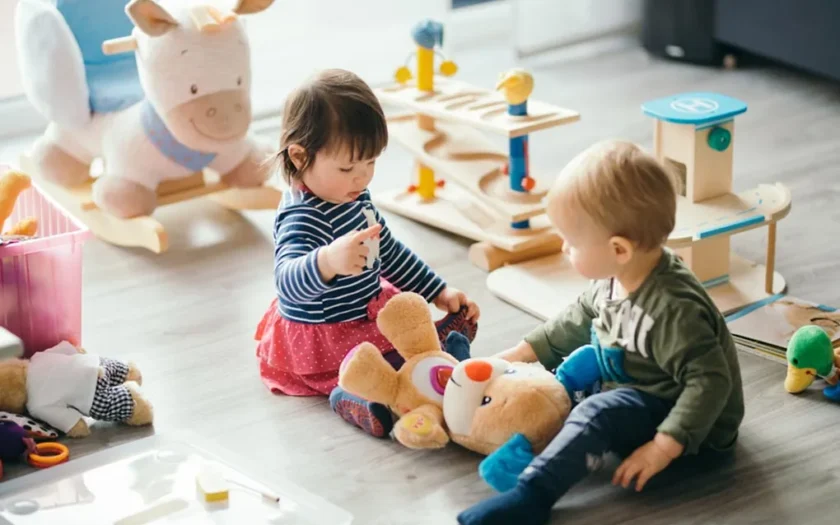Helping Your Baby Sleep Independently: Tips and Tricks
Holding your newborn while they sleep is one of the sweetest experiences of early parenthood. Those tiny eyelids fluttering as they drift off in your arms can fill you with warmth and joy. But while it’s a lovely bonding moment, it’s not always practical for every nap or bedtime. If you’re finding that your baby only sleeps when held, you’re not alone. Many parents face this challenge, and there are ways to gently transition your baby to sleeping independently.
Why Baby Only Sleeps When Held
- The Fourth Trimester:
During the first few months of life, known as the fourth trimester, your baby is adjusting to the world outside the womb. They’re used to the warmth, closeness, and constant movement they experienced in the womb, so it’s natural for them to feel most secure in your arms. Christine Brown, founder of Bella Luna Family, explains that in the early days, holding your baby for sleep is often necessary to provide the closeness and security they need. - Learned Behavior from the Womb:
For nine months, your baby was cradled in a cozy, soothing environment. After birth, they may seek to recreate those familiar sensations, often preferring to be rocked or held while they sleep. However, if this continues, it can make it harder for them to learn to sleep independently, as they may wake up between sleep cycles and look for the motion or comfort they’ve become accustomed to. - Falling Asleep While Feeding:
It’s common for babies to fall asleep while nursing or bottle-feeding, especially if they’re overtired. If they’re not getting enough wake time between feeds, they may doze off mid-feed, which can prevent them from developing independent sleep habits. - Reflux or Colic:
If your baby has reflux or colic, they may have difficulty settling down to sleep, making you more likely to hold them until they fall asleep. In these cases, holding them upright for 20 minutes after feeding can help before placing them in their crib. - Supported Sleep Becomes a Habit:
If your baby doesn’t have any health issues, sleeping in your arms may have simply become a habit. As Courtney Zentz, founder of Tiny Transitions, notes, sleep is a learned skill. If a baby becomes accustomed to being rocked to sleep, they’ll expect the same every time, making it harder to transition to independent sleep.
Is Letting Baby Sleep in Your Arms a Bad Thing?
It’s important not to stress if your baby only sleeps when held. This phase is fleeting, and there’s nothing wrong with taking time to enjoy these special moments. However, there are pros and cons to consider:
Pros:
- Quality Sleep: Your baby is likely to get solid sleep while being held.
- Bonding Time: Holding your baby while they sleep provides invaluable bonding time.
Cons:
- Sleep Association: Your baby may develop an association with being held and have difficulty sleeping independently.
- Safety Concerns: There’s a risk of accidentally dropping your baby if you fall asleep while holding them.
- Limited Personal Time: You may find it hard to get things done or take care of yourself if you’re always holding your baby during naps.
Tips for Getting Baby to Sleep Without Being Held
When your baby starts to smile intentionally—around 6 to 8 weeks old—it’s a good time to begin transitioning them to sleep independently. This is when babies become more awake and social, and it’s an ideal time to start teaching them the skills they need to sleep on their own.
- Make it a Gradual Transition:
Start by putting your baby down for one nap a day in their crib or bassinet while they’re drowsy but still awake. This helps them learn to fall asleep on their own and can be built upon over time. - Adjust the Order of Naptime Events:
Try changing the routine so that feeding comes first, followed by a calming activity like reading a book. Then, lay your baby down in their crib to sleep. - Offer Gentle Reassurance:
When you lay your baby down, offer gentle comfort without overstimulation. You can hold their hand or place your palm on their chest. Gradually reduce the amount of support you provide as your baby becomes more comfortable sleeping independently. - Give Yourself Grace:
Transitions can be challenging, and it’s important to be kind to yourself. There will be ups and downs, and it’s okay if things don’t go perfectly. Celebrate small successes and remember that your baby will eventually learn to sleep on their own.
In conclusion, while it’s heartwarming to hold your baby as they sleep, teaching them to sleep independently is an important step that can benefit both you and your baby in the long run. By gradually transitioning them to their own sleep space, you’ll help them develop healthy sleep habits that will serve them well as they grow. And remember, it’s perfectly fine to enjoy those cuddles along the way—balance is key!



